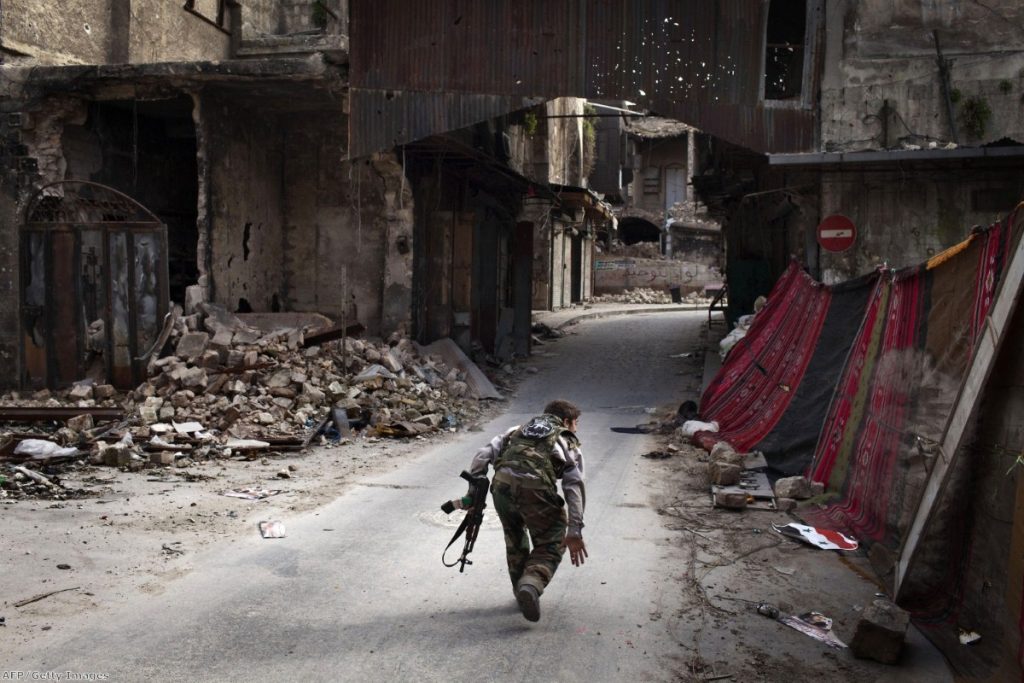A drop in the ocean: How the UK dodged responsibility for Syria’s refugees
Update: The Home Office have now informed us that only 24 Syrian refugees have been accepted through the Vulnerable Persons Relocation scheme. Full update below.
The only effective comparison event to the Syrian refugee crisis is India/Pakistan following partition. It is estimated that by next year, there will be 2 million Syrian refugees in Lebanon, a country with 4.5 million people. This tinderbox of carefully balanced religious identities could so easily slip into the abyss Iraq is currently sinking into, as Syria drags everyone down.
The UK's response to the Syrian refugee crisis has been one of reluctance, followed by surrender, followed by loudly trumpeted promises. It refused to take part in the UNHCR's Gateway Protection Programme for years, then finally submitted under pressure from Ed Miliband. Then in January it backed down and promised to take in people through its own programme.
Six months have passed. And how many people have come through the UK scheme? Forty-five. A drop in the ocean.


Perhaps that explains why the government makes the figures so hard to come by. They are not released through the media office. They emerge, if at all, as a result of parliamentary questions.
Last month home affairs committee chairman Keith Vaz asked immigration minister James Brokenshire how many people had arrived in the UK under the Syrian refugee programme. The answer was 24.
A few days ago Labour MP Mark Hendrick asked a similar question and was told that 45 Syrians and their dependants have been granted humanitarian protection.
The Home Office says 'humanitarian protection' is the same as the Syrian Vulnerable Persons Relocation scheme (VPR) which was created in January. So the extra 21 people are either people selected since May or the families of the people who were accepted before May.
In other respects the UK's humanitarian behaviour has been commendable. We've taken 2,649 of the Syrians who made it here (mostly the wealthy and the very, very lucky) since 2011 at initial decision. We've been generous in funding humanitarian projects in the region – and for good reason. Many refugees wanted to stay near to Syria in the mistaken belief that the civil war would not last long.
But our reluctance over taking part in the UNHCR scheme has been lamentable and our current acceptance of Syrian refugees is a bad joke. We are facing possibly the greatest humanitarian catastrophe of the 21st Century and Britain's response is to take 45 people.
Why is it so lacklustre? Ministers blame local councils like Sheffield, Manchester and Hull, who have refused requests to take Syrians. But it is their own fault. The relocation scheme lasts for five years but the funding for councils to take the refugees lasts for only one. What did they think was going to happen?
That left Bradford and one other unnamed council alone in offering to take them. It's exactly the type of shoddy planning and meanness which makes refugee relocation so chaotic. When people later complain of pressure on local services, one might look to short-sighted money saving attitudes like this as a possible culprit.
Brokenshire says the scheme "is based on need, rather than being designed to meet a quota". If so that makes the UK commitment doubly laughable. No-one believes there is so little need for relocation of refugees that 45 is a useful contribution. It's more likely that the few councils who have been prepared to bite the financial bullet and let in Syrian refugees have put in strict limits about how many. Bradford, for instance, has set the limit at 50.
We can't really get to the bottom of it because the Home Office releases so little information. "We will not be releasing any further details; such as where they are travelling from, their specific vulnerabilities, or where they will be placed," Brokenshire informed Vaz. You can see why he feels the need to keep things hidden away.
Update: The Home Office have been contact to correct an earlier piece of information they gave me, which is that 'humanitarian protection' was equivalent to inclusion in the VPR scheme. That means that according to the most current information available, only 24 Syrian refugees have been allowed to come to the country as part of the government's scheme.
It's commendable that the Home Office got in contact to supply accurate information which was not in their interest, given the angle of the article. But this truly is a despairing small number. It's even worse than we thought.
For all the noise made about Britain's reputation for taking in the most vulnerable people in the world, when the cards are down we do next-to-nothing.
Update two: The Refugee Council have got in touch with a response from chief executive Maurice Wren. He said:
"It’s disappointing to hear that the UK has so far yet to offer enough resettlement places to fill a bus when we should be offering entire plane loads of seats to safety.
"When the government first announced it was going to offer resettlement places to Syrian refugees it said it would do so on a needs basis. The need in the region is clearly vast, with UNHCR calling on governments around the world to help resettle 130,000 refugees and other governments increasing the numbers of places they are pledging. The UK must act similarly and be bold and ambitious in its plans to resettle Syrian refugees.
"Each resettlement place will change or even possible save a life; offering torture survivors and women affected by sexual violence the chance to rebuild their lives in safety.
"That’s why the government must send a clear message to Syrian refugees: we know you’re still suffering, we have not forgotten you, and we will go the extra mile to help you find safety."












